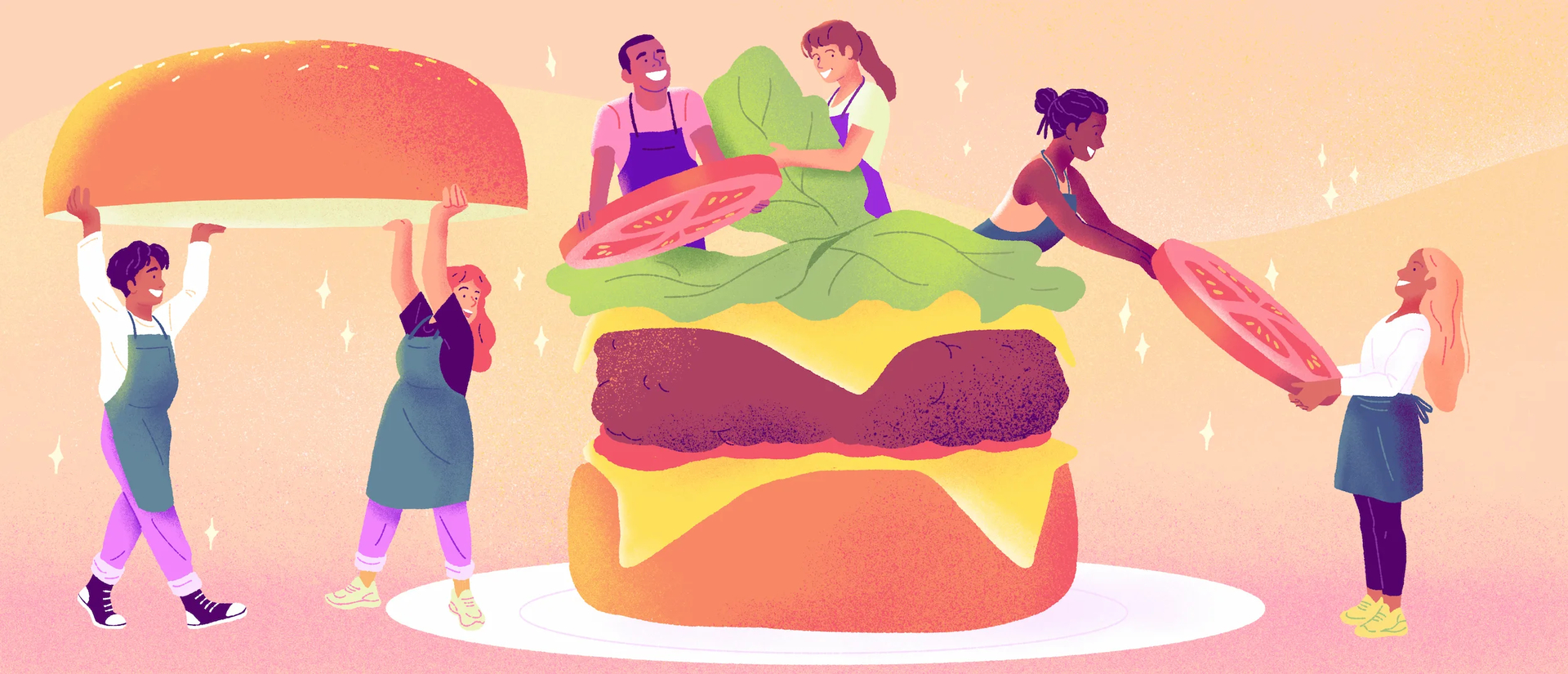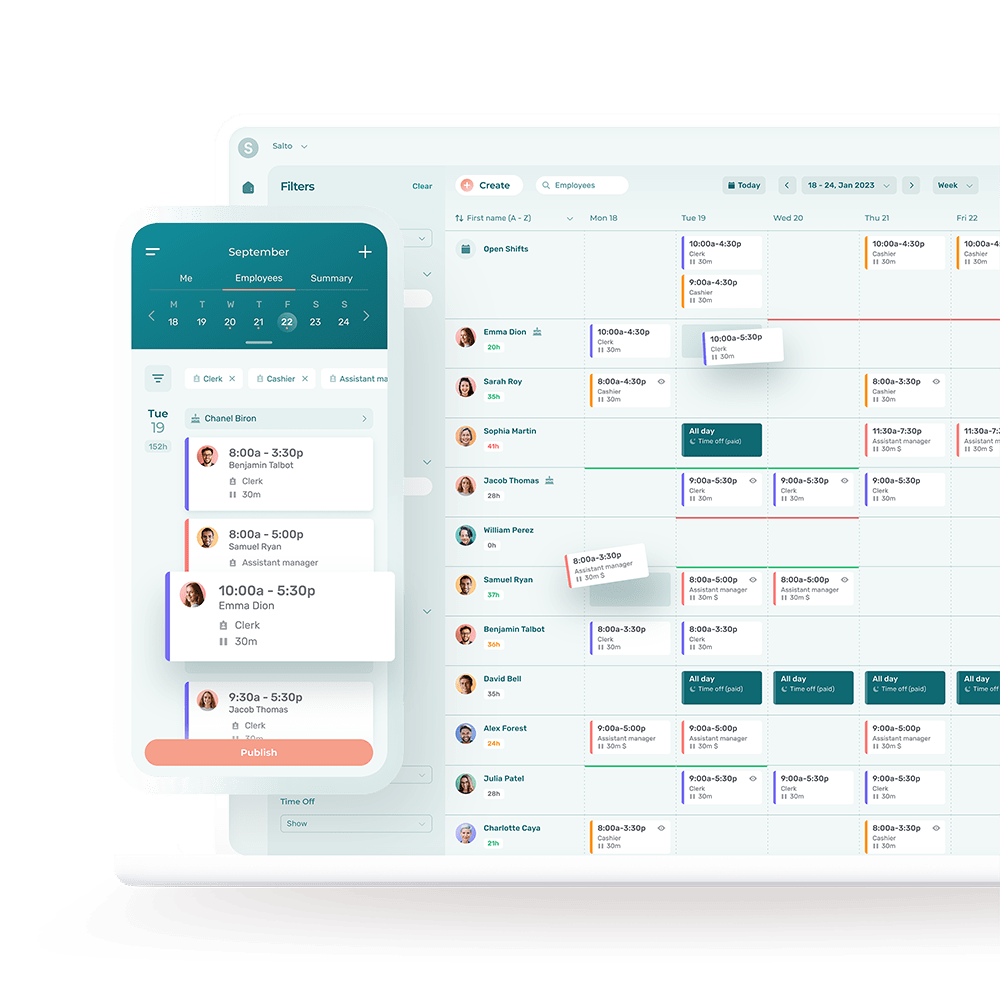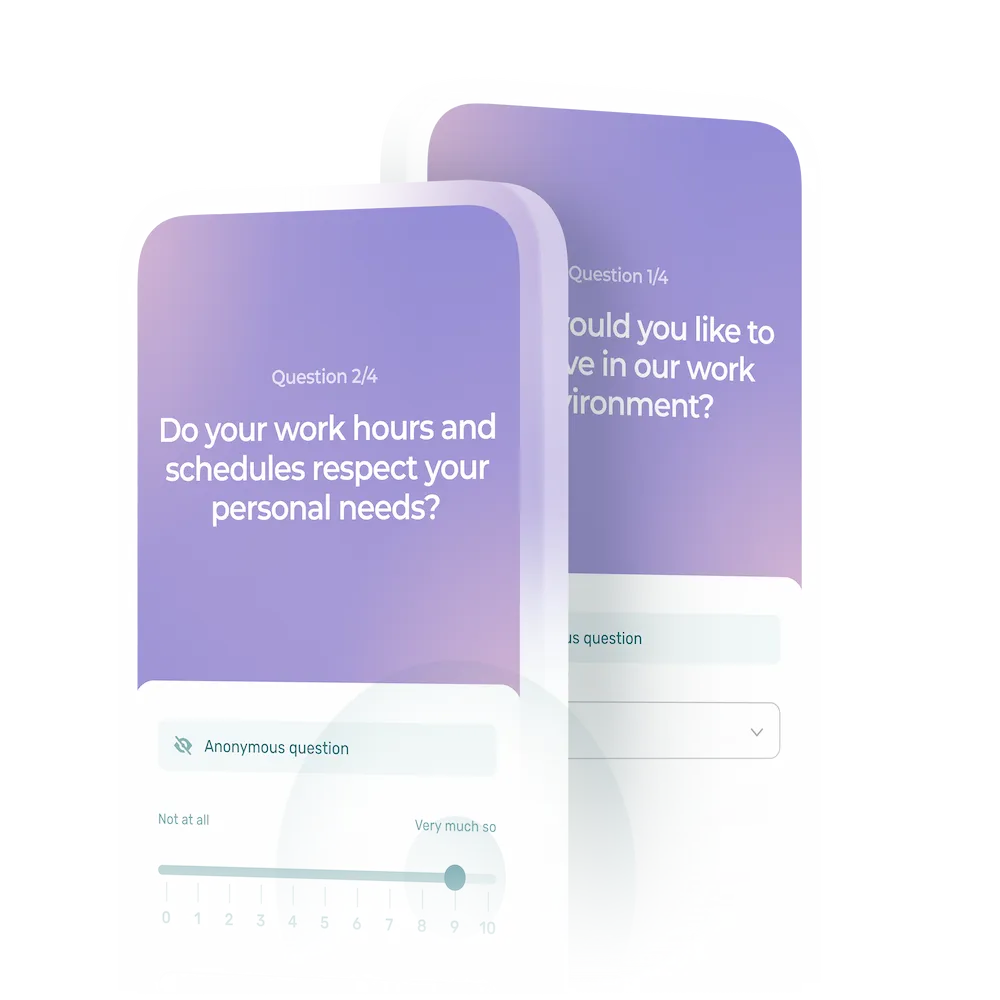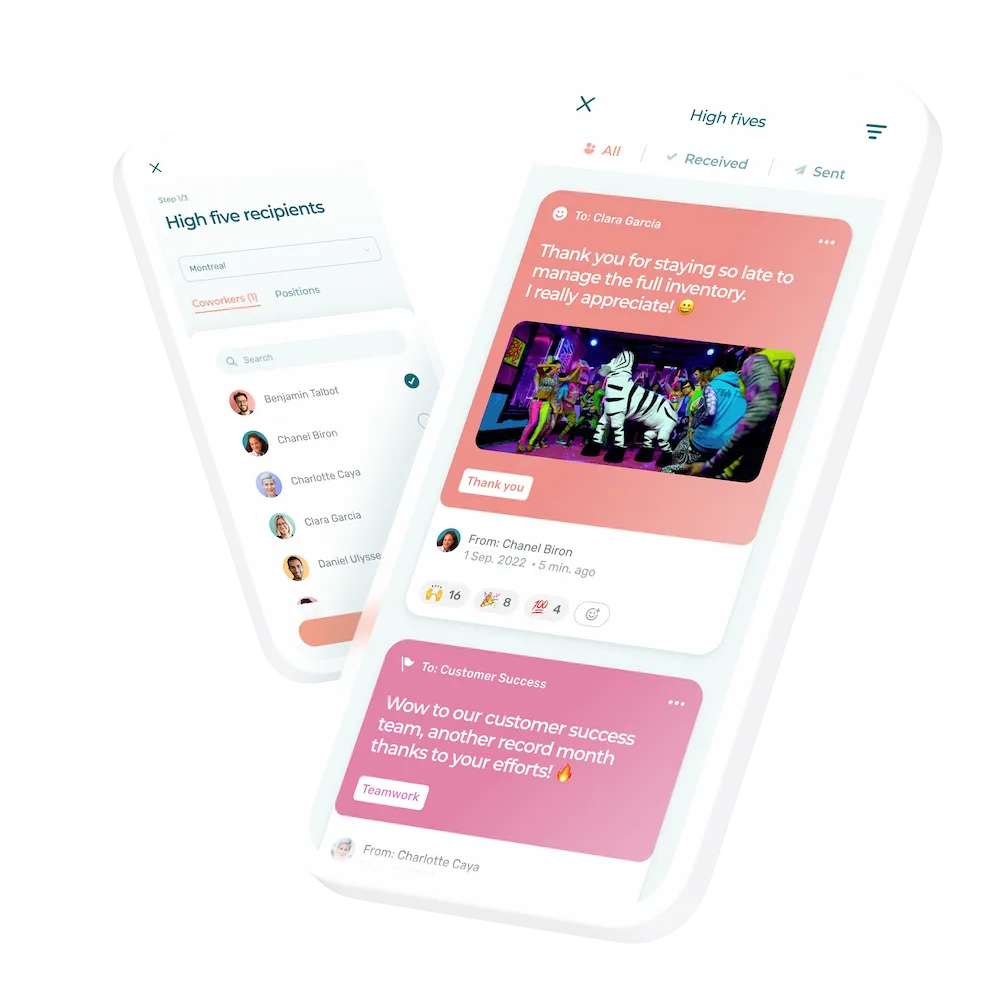The secret sauce to running a successful business requires the right mix of menu, location, pricing, service, and advertising. But also, the right restaurant culture.
See our tips and tools for building a strong restaurant culture. A must-read for all restaurant owners!
What Is Restaurant Culture?
Restaurant culture refers to the values, beliefs, behaviors, and norms that define how the staff works together and interacts with customers. Restaurant culture influences everything from the quality of the food and service to employee satisfaction and customer experience.
In essence, restaurant culture is the intangible yet pervasive character that define culture of the restaurant and sets the tone for its daily operations and long-term success.
Why Does a Strong Restaurant Culture Matter?
A strong restaurant culture is crucial because it significantly impacts overall business success. It creates a more enjoyable and productive work environment that enhances the employee experience and employee engagement. Building a strong restaurant culture also allows managers to attract and retain higher-quality talent, and it fosters a loyal customer base.
Having a great restaurant culture also brings out all the best qualities of a good manager.
Attract Better Talent
A positive and well-defined restaurant culture acts as a magnet for skilled professionals. Talented individuals are often drawn to workplaces that align with their personal values and where they anticipate a fulfilling work experience.
A positive company culture that emphasizes respect, teamwork, and service excellence can set a restaurant apart as an employer of choice. When the word spreads that a restaurant is a great place to work, it naturally attracts more skilled and enthusiastic applicants.
Improve Employee Retention
A positive culture fosters a sense of belonging and loyalty among employees. When staff feel valued, understood, and aligned with the restaurant’s goals and values, they are more likely to stay with the establishment long-term.
Toxic restaurant culture is not just a myth. According to the National Restaurant Association, 17% of restaurant staff leave due to the workplace culture.
- Toxic restaurant culture is not just a myth. According to the National Restaurant Association, 17% of restaurant staff leave due to the workplace culture.
High employee turnover is a significant challenge in the restaurant industry, and a strong culture can be a key factor in mitigating this issue. Lower turnover rates not only save costs associated with recruiting and training new staff but also contribute to a more experienced and cohesive team.
Keep Employees Engaged
A strong restaurant culture enhances employee engagement. Keeping employees can take some effort, but the results are worth it. Engaged employees are more motivated, passionate about their work, and committed to providing excellent service. This leads to a higher quality of customer experience, as engaged staff are more likely to go the extra mile to ensure customer satisfaction.
In the restaurant industry, where customer experience is paramount, having engaged employees can directly lead to business growth.
Strengthen Restaurant Brand Reputation and Customer Loyalty
The culture of a restaurant extends to the customer experience. A vibrant, positive workplace culture is often palpable to customers, contributing to a pleasant dining environment and stronger customer loyalty.
Happy employees tend to provide better service, leading to repeat business and positive word-of-mouth referrals.
- It can cost $5,864 to replace ONE hourly employee, according to “The Cost of Employee Turnover: When the Devil is in the Details” by Cornell University.
Examples of Restaurants With a Strong Company Culture
In the competitive restaurant industry, a strong company culture can be a crucial driver of success. Here are 3 popular restaurant chains famous for their strong culture.
Chipotle Mexican Grill 🌯
Chipotle is known for its emphasis on fresh, high-quality ingredients and sustainable farming practices. This commitment to “Food with Integrity” is a core part of their culture and has attracted both customers and employees who share these values.
By prioritizing the health and environmental impact of their food, Chipotle has cultivated a strong brand identity that resonates with a health-conscious, environmentally aware customer base. This focus on sustainability and quality has been integral to their success and popularity, especially among younger demographics.
Starbucks ☕
Starbucks has created a culture centered around not just serving coffee, but creating a unique customer experience, often referred to as the “third place” — a comfortable space between home and work. Their emphasis on customer service, community involvement, and employee empowerment (referring to restaurant employees as “partners”) has been key to their success.
Starbucks’ comprehensive employee benefits, even for part-time workers, including health insurance, stock options, and tuition coverage, have made it an attractive place to work, enhancing employee satisfaction and retention.
In-N-Out Burger 🍔
In-N-Out Burger has created a reputation for a simple menu, high-quality ingredients, and exceptional customer service. Their company culture emphasizes employee welfare, offering above-average pay, excellent training, and opportunities for growth within the company. As a result, the chain attracts plenty of restaurant job seekers.
This approach has led to high employee morale and low turnover rates, which in turn contribute to consistent, high-quality customer service. The loyalty and satisfaction of both staff members and customers have been central to the chain’s enduring popularity and success.
How to Build a Great Company Culture in the Restaurant Industry
Don’t let toxic restaurant culture stand in the way of your success. Below are some actionable tips a business owner can use to improve company culture at their restaurant.
Encourage Open Dialogue
Open dialogue in a work setting refers to an environment in which employees feel comfortable and encouraged to openly express their thoughts, ideas, concerns, and feedback without fear of judgment or retaliation.
Why open dialogue is helpful
- Encouraging open dialogue in a restaurant setting fosters a sense of belonging and respect among staff.
- Allowing employees to voice their ideas, concerns, and suggestions can lead to a more collaborative and innovative work environment.
- Open communication can also help identify and solve problems more quickly and efficiently.
Quick tips to foster open dialogue with employees
- Schedule regular staff meetings where everyone can speak freely and share their thoughts.
- Implement a suggestion box or send out regular employee satisfaction pulse surveys to collect anonymous feedback.
- Encourage managers to maintain an open-door policy for staff to discuss issues or ideas.
2. Recognize Hard Work
Restaurant work can be grueling for both front-of-house and back-of-house staff. Restaurant employees rarely get praised for their hard work or willingness to go above and beyond. This could be bending over backward to satisfy a customer, or agreeing to a last-minute shift swap to help out a coworker in a bind.
Why recognizing hard work is helpful
- Acknowledging the hard work and achievements of your staff boosts morale and motivates employees.
- Recognition makes employees feel valued and appreciated, which can lead to increased loyalty and reduced turnover.
Quick tips to recognize the hard work of restaurant staff
- Implement an employee of the month program with rewards.
- Publicly acknowledge individuals’ contributions during team meetings or with a high-five on your internal communication platform.
- Offer personalized thank you notes or small tokens of appreciation for exceptional work.
3. Schedule Fairly and Transparently
Scheduling fairly and transparently, especially in a restaurant setting, means allocating work hours and shifts in a manner that is equitable and clear to all employees in the restaurant business.
Why scheduling fairly and transparently is helpful
- Fair and transparent scheduling ensures that all staff feel they are treated equally.
- It helps in balancing work-life commitments, reducing burnout, and maintaining a positive work environment.
Quick tips to create restaurant schedules that are fair and transparent
- Release schedules well in advance.
- Rotate weekend and holiday shifts among all staff.
- Allow employees to give feedback on their schedules and make adjustments when possible.
See how Agendrix restaurant employee scheduling and management software makes it easy.
3 ways Agendrix can improve scheduling, employee satisfaction, and productivity
- Agendrix employee scheduling software streamlines the process of creating fair and transparent schedules, particularly in sectors like hospitality, retail, and healthcare. Its intuitive interface allows managers to efficiently allocate shifts, taking into account employee availability, preferences, and workload. This ensures a balanced distribution of work hours, promoting fairness and transparency.
- With Agendrix, employees can submit their availability and time-off requests directly within the app, which managers can easily view and consider when creating schedules. This level of open communication and visibility helps in reducing conflicts and misunderstandings, fostering a more harmonious work environment.
- Agendrix’s real-time notifications keep everyone updated on any schedule changes, ensuring that all team members are always informed and on the same page.
4. Prioritize Safety
As a business owner, it’s important to prioritize safety for restaurant workers as it directly impacts the well-being and morale of the staff. A safe work environment minimizes the risk of accidents and injuries, which is particularly important in the restaurant industry where hazards like hot surfaces, sharp utensils, and slippery floors are common.
Why prioritizing safety for team members is helpful
- Prioritizing safety shows employees that their well-being is of utmost importance. This builds trust and a sense of security among the team.
- Implementing robust safety protocols and providing regular training will ensure compliance with health and safety regulations.
- A commitment to employee well-being will increase employee satisfaction, retention, and productivity.
- A strong safety record enhances the restaurant’s reputation among both staff and customers, contributing to the overall success and sustainability of the business.
Quick tips to prioritize safety for restaurant employees
- Conduct regular safety training sessions.
- Ensure all necessary safety equipment is available and maintained.
- Encourage employees to speak up about safety concerns or violations and facilitate reporting of these issues.
- Seek employee feedback on overall restaurant safety through employee surveys.
5. Hold Team-Building Events
A team-building event is a company-organized activity or gathering designed to foster a productive culture of collaboration. Employees must work together effectively in teams to complete fun but practical collaborative tasks or challenges. These can range from culinary challenges to outdoor activities.
Why holding team-building events is helpful
- Team-building events are particularly beneficial for restaurant teams, where effective teamwork is crucial for smooth operations and customer satisfaction.
- They help break down barriers, encourage collaboration, and can lead to better communication and understanding among staff.
- They can reveal hidden talents or leadership qualities among employees.
- They can help restaurant teams better manage stress during busy periods, and enhance overall team performance.
- They can be a fun and rewarding way to acknowledge the hard work of the staff, improving morale and job satisfaction.
Quick tips to hold team-building events with restaurant employees
- Organize regular team-building activities, either on-site or off-site.
- Involve staff in the planning of these events to ensure activities are enjoyable and engaging for everyone.
- Offer a variety of activities to cater to different interests and strengths.
Check out our 23 affordable team-building activities.
6. Address Conflicts Quickly
Conflicts among staff in a restaurant setting are bound to happen, given the fast-paced work culture and high-pressure environment typical of such establishments.
The combination of long hours, demanding physical work, and the need for seamless coordination among various roles—from chefs and servers to hosts and kitchen staff—can create a fertile ground for misunderstandings and disagreements.
Why addressing conflicts quickly among team members is helpful
- Quick resolution of conflicts prevents escalation and maintains a harmonious work environment.
- It demonstrates effective management and ensures that issues do not negatively impact the morale and productivity of the team.
- Maintaining a harmonious and productive team will lead to better customer service and restaurant productivity.
Quick tips to address conflicts quickly among restaurant employees
- Automate processes to minimize errors and inefficiencies that can lead to unnecessary conflicts. For example, replace manual or spreadsheet schedules with fit-for-purpose employee scheduling software.
- Staff can submit their work availability and time-off requests.
- Staff can request and accept shift swaps.
- Staff can view and approve their work schedule from their phone via the mobile app.
- Schedulers can address any number of scheduling issues; for example, they can enter specific criteria to ensure fair schedules that take into account things like shift requirements, team skill sets, seniority, labor laws, labor budgets, etc.
- Schedulers can have scheduling changes communicated automatically to staff in real-time.
- Schedulers can view actual hours worked, break times, vacation times, labor costs, overtime hours, etc. all at a glance.
- Provide training on conflict resolution for managers.
- Offer mediation sessions for conflicting parties.
- Create a feedback loop to ensure conflicts are resolved satisfactorily.
7. Engage in Community Work
Community work involves voluntary efforts to improve and support the local community. This can take various forms, such as participating in charity events, sponsoring local sports teams, engaging in environmental clean-up activities, or donating food to those in need.
Why getting involved in community work is helpful
- Engagement in community work enhances the restaurant’s reputation and fosters a sense of pride and accomplishment among staff.
- It helps in building a positive brand image and connects the restaurant more closely with the local community.
Quick tips to get your restaurant team involved in community work
- Organize volunteer days for staff to participate in local community projects.
- Partner with local charities or community organizations for events or fundraisers.
- Involve staff in choosing which community projects to support.
8. Integrate Your Restaurant Culture Into Your Employee Onboarding Process
Employee onboarding is the process of integrating new hires into the organization. Onboarding is crucial for setting the tone of an employee’s experience and ensuring they have the necessary tools and knowledge to succeed in their new role.
In a restaurant, this process involves familiarizing new employees with their job responsibilities, the restaurant’s policies and procedures, the team they will be working with, and the overall work environment. Introducing new hires to the restaurant’s culture is a key component of this process.
Why integrating your company’s culture into your employee onboarding process is helpful
- When restaurants define culture and integrate it into their employee onboarding process, restaurants ensure that new hires understand and align with these cultural aspects even before their first day of work.
- It helps new hires feel connected and committed to the restaurant’s goals and company values.
- It can lead to a more cohesive team and better service—ultimately building a strong restaurant brand identity.
- It promotes a sense of belonging, which can significantly impact employee retention, job satisfaction, and engagement.
How to integrate restaurant culture into employee onboarding
- Include a session on company culture in the orientation program. Introduce new hires to the restaurant’s history, mission, customer service philosophy, and the expected standards of conduct.
- Assign new hires a mentor who exemplifies the restaurant’s culture.
- Have follow-up discussions to ensure new employees are aligning well with the culture.
Seamlessly oversee the onboarding of new employees and collect the information you need for HR purposes.
Try Agendrix employee onboarding software for new hires.
Attract and Retain Great Restaurant Employees
As a restaurant owner or manager, you go to great lengths to run a successful business. This starts by creating a strong restaurant culture so that you can build and keep the best possible team—the fundamental driving force behind your restaurant’s success.
Agendrix’s workforce management software can be an invaluable ally in your quest to cultivate a workplace culture that values its staff. It will help you foster an environment of respect and fairness through fair and transparent scheduling, respect and accommodation for employee preferences, and effortless two-way communication.
Create a great company culture and leverage tools that improve the employee and guest experience. Success is sure to follow.
Improve your restaurant’s organizational culture and management today. Agendrix restaurant employee scheduling and management software will make it easy.















